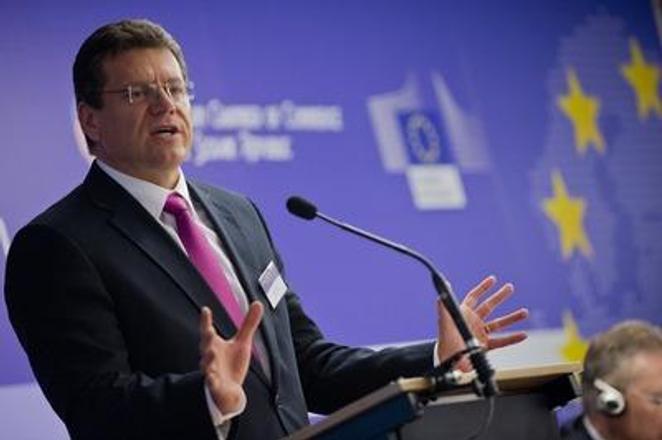Vice-President of the European Commission (EC) Maroš Šefčovič announced on Monday, September 17, his candidacy for the post of EC president. If elected, boosting the EU’s unity will be his key priority. When it comes to debates on the EU’s future, Šefčovič said that they should more prominently feature the representatives of central and eastern Europe and efforts to speed up the process of reducing differences in living standards between western and eastern EU-member countries.
“We have to get rid of the barbed-wire fences in our minds,” said Šefčovič, as cited by the Reuters newswire, referring to the Iron Curtain that had divided Europe into east and west during his youth. He believes that if living standards were more even, it would really mitigate the many difficult debates we’ve had recently.
With regard to migration, he said that we must do our utmost to prevent the trap of extremists and populists, who are trying to hijack the elections for a single issue - migration.
“It will be extremely important to convince people that we are increasingly in control of this issue,” said Šefčovič, as cited by the SITA newswire. “On the one hand, we know how to help the most vulnerable refugees and, on the other hand, we have established a clear rigorous process with regard to illegal migration.”
The current head of the EU’s executive Commission, Luxembourg’s Jean-Claude Juncker, will step down next year. His successor must be agreed by the leaders of the EU member states following elections to the European Parliament next May, Reuters informed.
A candidate for the post of European Commission president needs support for his candidacy from at least nine political parties from nine countries. Šefčovič has received support from socialist parties from nine EU countries to become the Party of European Socialists’ (PES) leader in the 2019 European Parliament election.
Šefčovič has received the backing of socialists from Cyprus, the Czech Republic, Lithuania, Latvia, Hungary, Malta, Poland, Romania and Slovakia. The PES is due to decide on its election leader at a convention in Latvia next month, while the party should make a public announcement regarding its choice in early December.
Meanwhile, EU diplomacy chief Federica Mogherini of Italy, who had also been considered as the possible PES election leader, has stated that she is not interested in any senior post in the EU’s next executive, TASR recalls.



 European Commission Vice-president for the Energy Union Maroš Šefčovič (source: TASR)
European Commission Vice-president for the Energy Union Maroš Šefčovič (source: TASR)